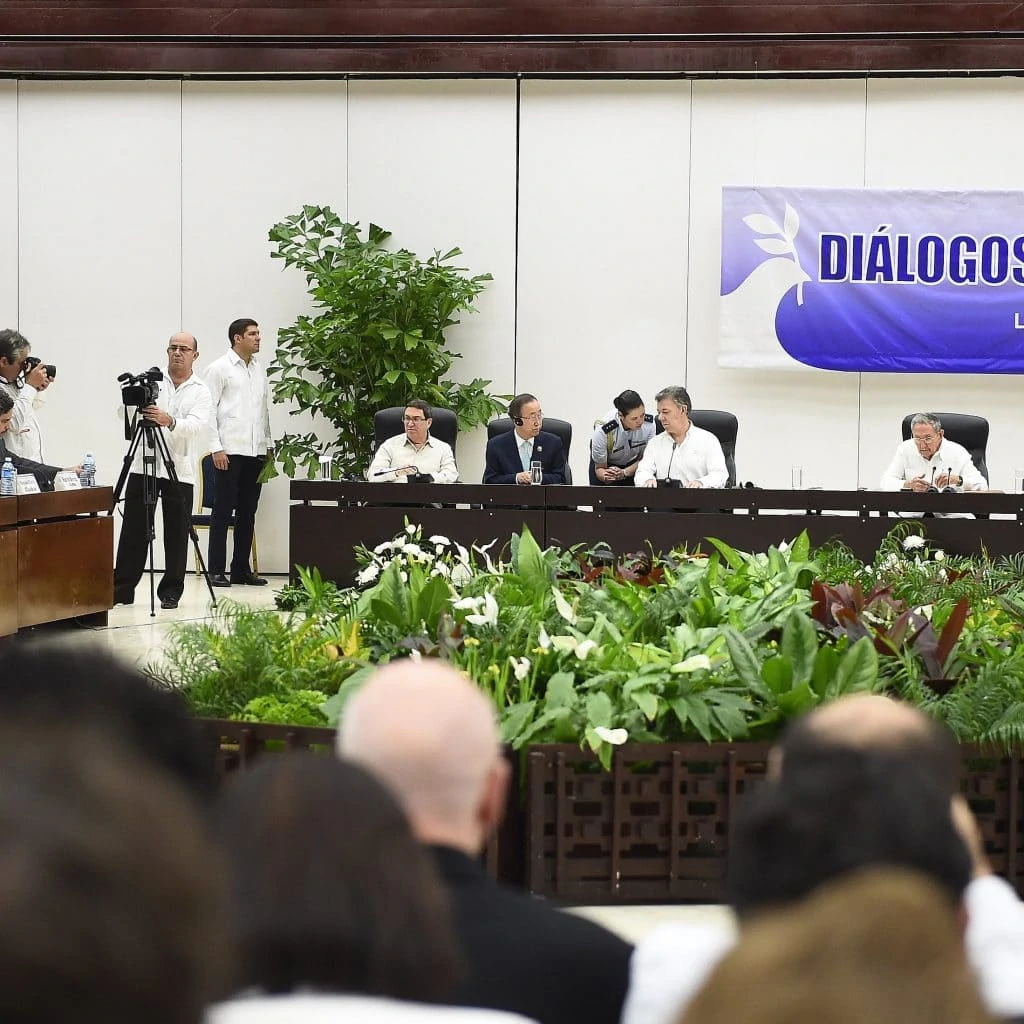MM - Colombia's government and the FARC guerrillas today reached an agreement on a peace agreement that should put an end to more than 50 years of civil war. The NGOs of the Swiss peace promotion programme "Semillas de Esperanza" welcome the agreement as an important step, but at the same time stress that this is only the beginning.
Following the signing of the ceasefire agreement on 23 June, the government and the FARC have now agreed on a comprehensive peace agreement to be signed in September. This means that a permanent end to the civil war in Colombia is now closer than ever before. It is particularly important for the victims of the conflict that massacres, expulsions, rapes and other acts of violence are not repeated, that the truth comes to light and that justice is finally done for them. The agreement is a necessary but not sufficient step and lays the foundations for peace in Colombia in the future.
A fair solution to the land question
With the formal signature, the great challenge of implementing the agreement begins. The central point of the peace agreement is the outlined solution to the land question. However, the implementation and enforcement of the right of displaced persons to return will hardly be conflict-free.
For the transformation of the FARC guerrillas into a political party, the security guarantees agreed in the peace agreement must become reality. Politically motivated murders are still the order of the day in Colombia and are an obstacle to political participation. The extreme right and local elites continue to express their firm opposition to a peace agreement and any political integration of the insurgents.
Fight corruption and impunity
In addition, the government must end links between paramilitary groups and state structures and fight corruption. Especially in the remote regions of Colombia, the state is only weakly represented. Attacks on human rights defenders reach a record high. Most crimes are not or only insufficiently prosecuted. Almost one hundred percent impunity is the result. Particular attention must also be paid to the fight against the drug mafia. The drugs mafia is responsible for a large part of the prevailing violence.
Broad participation of the population is indispensable for successful implementation of the peace agreement. According to surveys, however, only 38 percent of the population voted in favour of the peace agreement in December 2015. The civilian population must be strengthened so that it can find its own way to peaceful coexistence. In particular, the sustainable integration of combatants into civilian life is becoming a Herculean task.
Swiss peacebuilding project
The Swiss peacebuilding programme "Semillas de Esperanza" shows what a regional implementation of a peace process could look like. Two Colombian organizations working in the Caribbean region, which has been particularly hard hit by the conflict, accompany village communities in land rights issues, create opportunities for dialogue and promote local development. These measures defuse local and regional conflicts and thus contribute to the peace process in Colombia.
The organizations involved in the Swiss multitrack peacebuilding program "Semillas de Esperanza" are ask! (Switzerland-Colombia working group), Caritas Switzerland, COMUNDO, Swiss Catholic Lenten Fund, HEKS/EPER, PBI (Peace Brigades International), PWS (Peace Watch Switzerland), Swissaid, terre des hommes schweiz and Terre des Hommes Suisse.
Contact:
Caritas Switzerland, Mithra Akhbari, Programme Officer Colombia. Tel: +41 41 419 22 67


